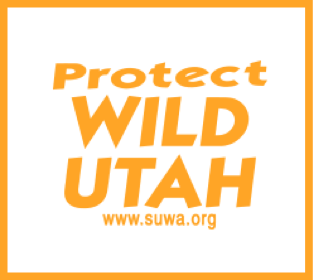|
Southern Utah Wilderness Alliance * Sierra Club *The Wilderness Society *
Contact: Stephen Bloch, Southern Utah Wilderness Alliance, 801/486-3161 x 3981 or Dave Slater, The Wilderness Society, 202/429-8441
SALT LAKE CITY, UT The National Park Service has been overwhelmed by strong public opposition to a proposed oil-drilling project in a remote corner of the Glen Canyon National Recreation Area (NRA). The Park Service received more than 79,000 public comments opposing the project, which is in an unspoiled area known as Middle Moody Canyon and would require expanded access roads through the adjacent Grand Staircase-Escalante National Monument (which is managed by the Bureau of Land Management). “Resurrecting this project was a bad idea on every level,” said Stephen Bloch of the Southern Utah Wilderness Alliance. “First, the proposed drilling area is in the midst of two national park units (Glen Canyon NRA and Capitol Reef National Park) and a national monument. Second, the Park Service’s own geologists suggest that the area contains at best a trivial and certainly insignificant amount of oil. Third, the federal agencies were hoping to proceed without even conducting a full and comprehensive analysis of the potential damage that drilling would cause to this unique area.” Conservation groups are asking the agencies to deny the project based on concerns over environmental damage. At a minimum, the groups say, the agencies should not move forward before they prepare a full environmental impact statement and commit to holding public meetings including hearings in major metropolitan areas, such as Salt Lake City to give citizens an adequate opportunity to voice their objection to this proposal. The project would be located in one of the more scenic spots in the Glen Canyon NRA/Capitol Reef National Park/Grand Staircase-Escalante NM area, and would involve bulldozing a drill pad and sludge pit, installing holding tanks, and creating or rebuilding several miles of dirt road. Lands in the national monument that would be affected are currently protected for their wild and natural values. “This is one of America's most wild and spectacular landscapes,” said Wayne Hoskisson of the Sierra Club’s Utah Chapter. “Drilling for oil in this area was a bad idea 36 years ago, and it's still a bad idea.” According to Bloch, the Park Service hoped that it could move forward without public meetings for the project, but by the close of the public comment, or “scoping,” period on August 15, the agency had been overwhelmed by more public comments than it has the time or money to review. Thus far, the Park Service has earmarked $50,000 for the entire environmental review process. “At a time of lean Park Service budgets, it seems misguided for the Service to spend thousands promoting a controversial drilling project in such an environmentally sensitive area,” said Johanna Wald of the Natural Resources Defense Council. “The well pad and its access roads would carve a severe and lasting scar across this remote expanse of classic redrock country. The Park Service should listen to the public and put this project back on hold.” Many of the comments about the drilling project were sent by people nationwide who received alerts from Natural Resources Defense Council (NRDC), The Wilderness Society, and other groups. Although government agencies have increasingly discounted these comments as “form letters,” conservation groups argue that these letters confirm strong public concern about the issue. “People who care about the Park System and its future usually don’t have a simple way to cut through the bureaucracy and express that concern,” said The Wilderness Society’s Jill Ozarski. “We consistently hear from our supporters that they consider the ability to submit comments electronically to be critical to their role as public land advocates. These people are thoughtful and engaged stakeholders and it would be a mistake to discount their commitment to these issues.” “Nearly 300 million people will visit national parks this year. They go to places like Glen Canyon to enjoy breathtaking scenery and wildlife watching. They do not go to the parks to see oil rigs,” said Craig Obey of the National Park Conservation Association. |
|
|

 Southern Utah Wilderness Alliance
Southern Utah Wilderness Alliance
Protecting Utah's Redrock Country
